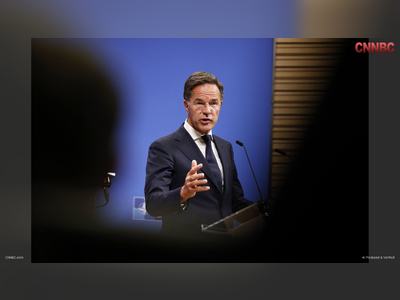
Israeli Security Cabinet Recommends Approving Gaza Ceasefire Deal Amid Hostage Release Plans
Following complex negotiations, an agreement between Israel and Hamas aims to secure a temporary ceasefire and exchange hostages for prisoners.
In a significant development, the Israeli security cabinet has recommended moving forward with a ceasefire deal involving Hamas, the militant group governing the Gaza Strip.
This decision comes after intricate negotiations, delayed meetings, and allegations of reneged commitments by Hamas.
The approved deal aligns with Prime Minister Benjamin Netanyahu's assertion that the agreement supports the war's objectives, according to an official statement from his office.
The provisional ceasefire plan, facilitated by intense diplomatic efforts, is expected to commence this coming Sunday, marking the end of hostilities that have escalated since the October 7 conflict.
In a reciprocal arrangement, Israel has agreed to release hundreds of Palestinian prisoners over a six-week period in exchange for 33 hostages currently held by Hamas.
However, plans for complete Israeli troop withdrawal from the region remain unconfirmed.
The deal's progress was initially stalled as Israeli Prime Minister Netanyahu accused Hamas of backtracking on certain aspects of the negotiation.
Despite this, the agreement, officiated in Doha, plans to bring an end to immediate military tensions, although Israeli airstrikes have reportedly killed at least 87 people in Gaza since the ceasefire was announced.
Israeli President Isaac Herzog and other political figures have commended the cabinet's decision, emphasizing the moral and national imperative of returning the hostages.
However, Netanyahu faces the dual challenge of domestic pressure to bring the hostages back and maintaining the fragile unity of his coalition government, which has shown division regarding concessions to Hamas.
International political ramifications are also at play, with U.S. President Joe Biden and diplomatic actors such as Qatar applauding the tentative agreement.
Meanwhile, global leaders express cautious optimism for a truce, acknowledging the humanitarian crisis intensified by months of conflict.
Locally, reactions are mixed, with jubilant responses from war-weary Gazans juxtaposed against concerns from families of fallen soldiers in Israel who fear excessive leniency towards Hamas.
This sentiment is echoed by certain far-right elements within the Israeli government, posing potential threats to Netanyahu's political stability if the deal proceeds without their full endorsement.
As the international community observes these developments, the agreement embarks on a precarious path toward alleviating immediate violence while raising complex questions about long-term peace and the region's future geopolitical dynamics.
This decision comes after intricate negotiations, delayed meetings, and allegations of reneged commitments by Hamas.
The approved deal aligns with Prime Minister Benjamin Netanyahu's assertion that the agreement supports the war's objectives, according to an official statement from his office.
The provisional ceasefire plan, facilitated by intense diplomatic efforts, is expected to commence this coming Sunday, marking the end of hostilities that have escalated since the October 7 conflict.
In a reciprocal arrangement, Israel has agreed to release hundreds of Palestinian prisoners over a six-week period in exchange for 33 hostages currently held by Hamas.
However, plans for complete Israeli troop withdrawal from the region remain unconfirmed.
The deal's progress was initially stalled as Israeli Prime Minister Netanyahu accused Hamas of backtracking on certain aspects of the negotiation.
Despite this, the agreement, officiated in Doha, plans to bring an end to immediate military tensions, although Israeli airstrikes have reportedly killed at least 87 people in Gaza since the ceasefire was announced.
Israeli President Isaac Herzog and other political figures have commended the cabinet's decision, emphasizing the moral and national imperative of returning the hostages.
However, Netanyahu faces the dual challenge of domestic pressure to bring the hostages back and maintaining the fragile unity of his coalition government, which has shown division regarding concessions to Hamas.
International political ramifications are also at play, with U.S. President Joe Biden and diplomatic actors such as Qatar applauding the tentative agreement.
Meanwhile, global leaders express cautious optimism for a truce, acknowledging the humanitarian crisis intensified by months of conflict.
Locally, reactions are mixed, with jubilant responses from war-weary Gazans juxtaposed against concerns from families of fallen soldiers in Israel who fear excessive leniency towards Hamas.
This sentiment is echoed by certain far-right elements within the Israeli government, posing potential threats to Netanyahu's political stability if the deal proceeds without their full endorsement.
As the international community observes these developments, the agreement embarks on a precarious path toward alleviating immediate violence while raising complex questions about long-term peace and the region's future geopolitical dynamics.












